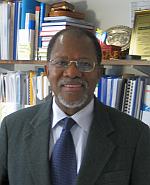
The UNESCO-UNEVOC International Centre: Who We Are | What We Do | Working With Us | Get in Touch
The UNEVOC Network: Learn About the Network | UNEVOC Network Directory
For Members: UNEVOC Centre Dashboard
Thematic Areas: Inclusion and Youth | Digital Transformation | Private Sector Engagement | SDGs and Greening TVET
Our Key Programmes & Projects: BILT: Bridging Innovation and Learning in TVET | Building TVET resilience | TVET Leadership Programme | WYSD: World Youth Skills Day
Past Activities: COVID-19 response | i-hubs project | TVET Global Forums | Virtual Conferences | YEM Knowledge Portal
Our Services & Resources: Publications | TVET Forum | TVET Country Profiles | TVETipedia Glossary | Innovative and Promising Practices | Toolkits for TVET Providers | Entrepreneurial Learning Guide
Events: Major TVET Events | UNEVOC Network News
UNESCO-UNEVOC Bulletin 18
July 2010
 Dear colleagues,
Dear colleagues,
Right before the summer holiday month of August, we are sending you the 18th issue of the UNESCO-UNEVOC Bulletin. Several important activities have been organized by UNEVOC over the last few months:
The UNESCO-UNEVOC International Centre, in cooperation with Capacity Building International (InWEnt, Germany) and with the assistance of the Malawi National Commission for UNESCO, recently held a UNEVOC sub-regional meeting-cum-seminar in Lilongwe, Malawi (13-15 July 2010). Twenty-six educators from selected UNEVOC Centres and National Commissions from Southern and Eastern Africa, as well as participants from a UNEVOC Centre in Norway, the Korea Research Institute for Vocational Education & Training (KRIVET) and several institutions associated with InWEnt, met to exchange knowledge and experiences about development and innovation of TVET and to enhance collaboration and cooperation through the establishment of UNEVOC Regional Nodal Centres within the UNEVOC Network. The UNEVOC Regional Nodal Centres are a new category of UNEVOC Network members that are being established in response to the new UNESCO Strategy for TVET. The Nodal Centres are “a means to maximize impact” in relation to South-South, South-North and South-South-North cooperation. The UNESCO-UNEVOC International Centre intends to identify and select the UNEVOC Regional Nodal Centres within the UNEVOC Network.
In April of this year, Component I of the project “Entrepreneurship Education in the Arab States” was completed. This four-year activity (2009-2012), which is jointly implemented by UNESCO-UNEVOC and the UNESCO Regional Bureau in Beirut and funded by the StratREAL Foundation (UK), aims to support Arab countries in the development of educational policies and programmes to include the concept of “entrepreneurship” in their formal education systems. In April 2010, four case studies on entrepreneurship education in Egypt, Jordan, Oman and Tunisia, as well as a regional synthesis report, were published in Arabic and English. The case studies and report assess the status of entrepreneurship education in the educational systems in the Arab States. In addition, they identify examples of good practice that already exist in the region. The documents, which are an important input for countries that aim to develop strategic plans for the incorporation of entrepreneurship education into their educational systems, have been disseminated in the region and beyond and can be downloaded from the UNESCO-UNEVOC website.
For the fourth year in a row, the annual African UNESCO-UNEVOC TVET Summit took place at the 5th eLearning Africa conference in Lusaka, Zambia, in May 2010. The Summit was jointly organized by UNESCO-UNEVOC and the Commonwealth of Learning (COL), with support from the UNESCO offices in Dakar and Harare, the Zambian Ministry of Education and the German Federal Institute for Vocational Training (BIBB). This year, the meeting focused on the adoption by TVET institutions and skills training providers of a technology-supported, blended curriculum strategy that can improve institutional flexibility and access, and the Summit advocated that a long-term strategic focus to mainstream blended learning supports a broad range of TVET policy aims. The 56 participants from 22 countries (mainly African countries, but also Canada, Netherlands, Slovakia and UK) investigated what is meant by blended learning in skills development and how it has the potential to improve the quality of learning and teaching.
The UNESCO-UNEVOC International Centre welcomes the support of UNESCO Kingston in updating data on UNEVOC Centres and taking steps to assist in strengthening the UNEVOC Network in the Caribbean.
I invite you to read more about these and other activities, as well as about the latest UNEVOC publications and changes to the UNEVOC online services in this issue of the Bulletin.
L. Efison Munjanganja
Officer in Charge, UNESCO-UNEVOC International Centre